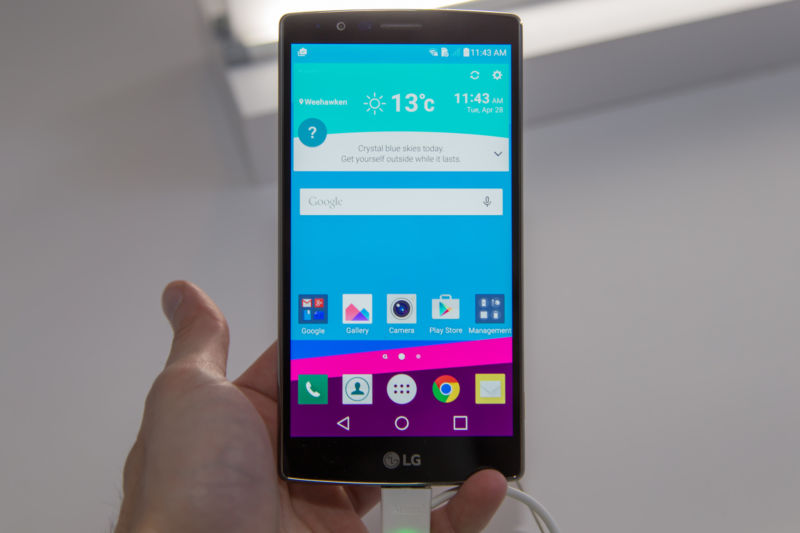
Here's some good news for Android fans who bought one of two bootloop-ridden LG flagships: a handful of upset owners of the LG G4 and LG V10 have lodged a proposed class-action lawsuit in a California federal court. The owners claim that a repeating bootloop issue "renders the phones inoperable and unfit for any use." That's legalese for the phone being bricked.
Thousands of complaints about the G4 have been highlighted on Twitter, Reddit, and YouTube. There was even an online petition to "launch a replacement program for defective LG G4s." Not to be outdone, the V10 has been the subject of many online complaints as well.
One of the plaintiffs in the lawsuit (PDF) filed Wednesday said that LG replaced his G4 two times and that his third G4 constantly freezes. The new phone, says the suit, is "manifesting signs of the bootloop defect and is unmerchantable."
LG, the South Korean electronics and appliance firm, did not immediately respond for comment.
A year ago, LG acknowledged the problem with the G4 and said it was the result of "loose contact between components." The company began offering replacement devices and fixes. The suit said that even after the January 2016 announcement, "LG continued to manufacture LG Phones with the bootloop defect."
What's more, the lawsuit claims:
Despite this admission, LG did not undertake a recall or offer an adequate remedy to consumers who purchased the LG G4 phone. LG instead replaced LG G4s that failed within the one-year warranty period with phones that had the same defect. And LG refused to provide any remedy to purchasers of LG G4s that failed outside the warranty period because of the bootloop defect.
Regarding the V10, the suit says:
LG released the LG V10 phone in October 2015. The LG V10's hardware closely resembles the LG G4 with only a few adjustments, such as expanded storage and an additional camera. Within a few months of its release, reports emerged that the V10 contained the same bootloop defect as the G4. LG V10 phones unexpectedly crash and then reboot interminably. Yet LG continues to sell and distribute the V10.
The suit claims that both models' processors were inadequately soldered to the motherboard, rendering them "unable to withstand the heat." Initially, the phones begin to freeze, suffer slowdowns, overheat, and reboot at random. Eventually, the suit says, they fail "entirely."
"To the extent they have not been backed up, all photographs, videos, contacts, and other data on the phone are permanently lost when LG Phones fail due to the bootloop defect," the suit said.
The suit claims unjust enrichment, unfair trade, and various breaches of warranty laws. It seeks "damages in an amount to be determined at trial" in addition to legal fees and costs. Also, the lawsuit demands that a federal judge order a "comprehensive program to repair all LG phones containing the bootloop defect" in addition to some undetermined amount of customer restitution.
reader comments
64